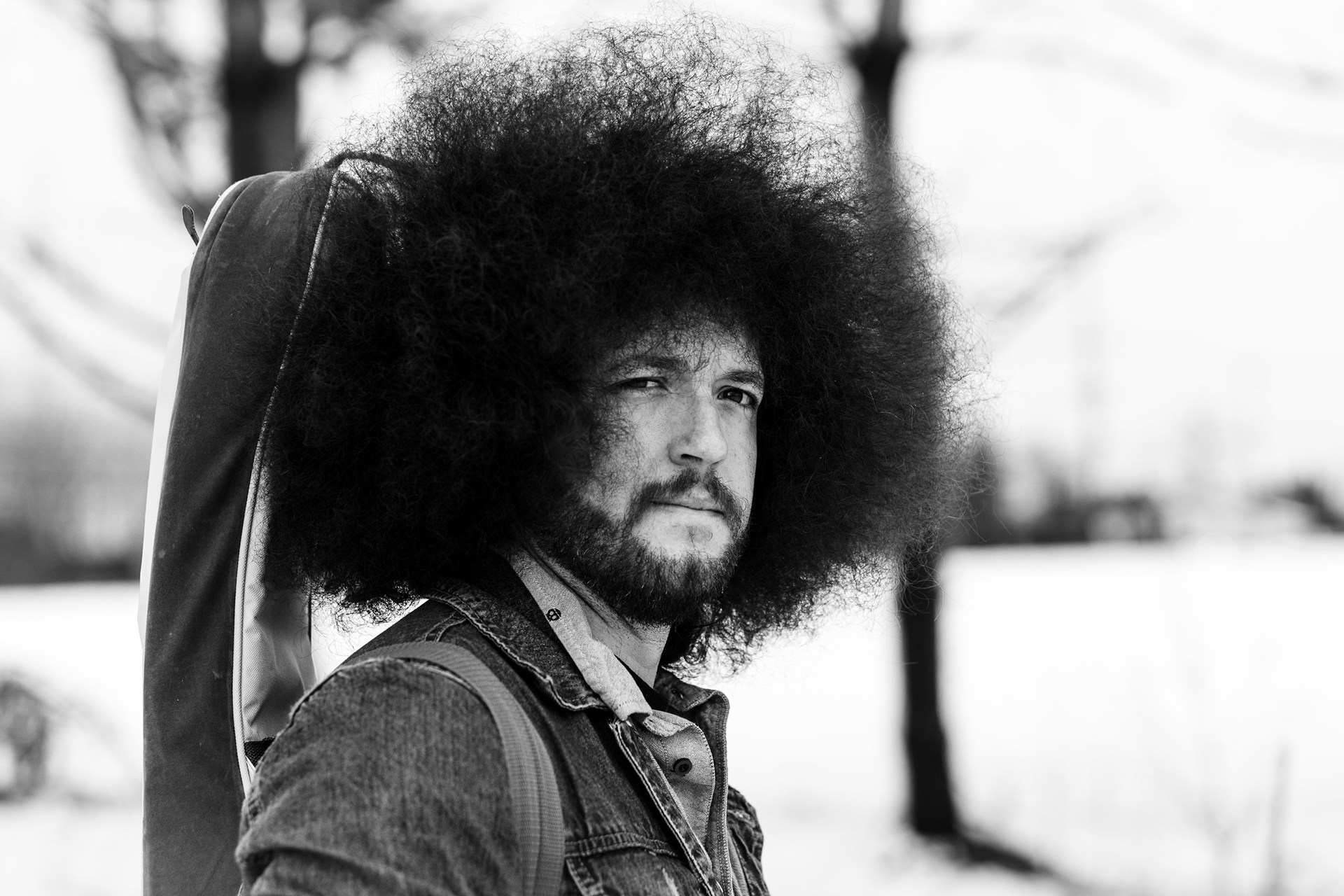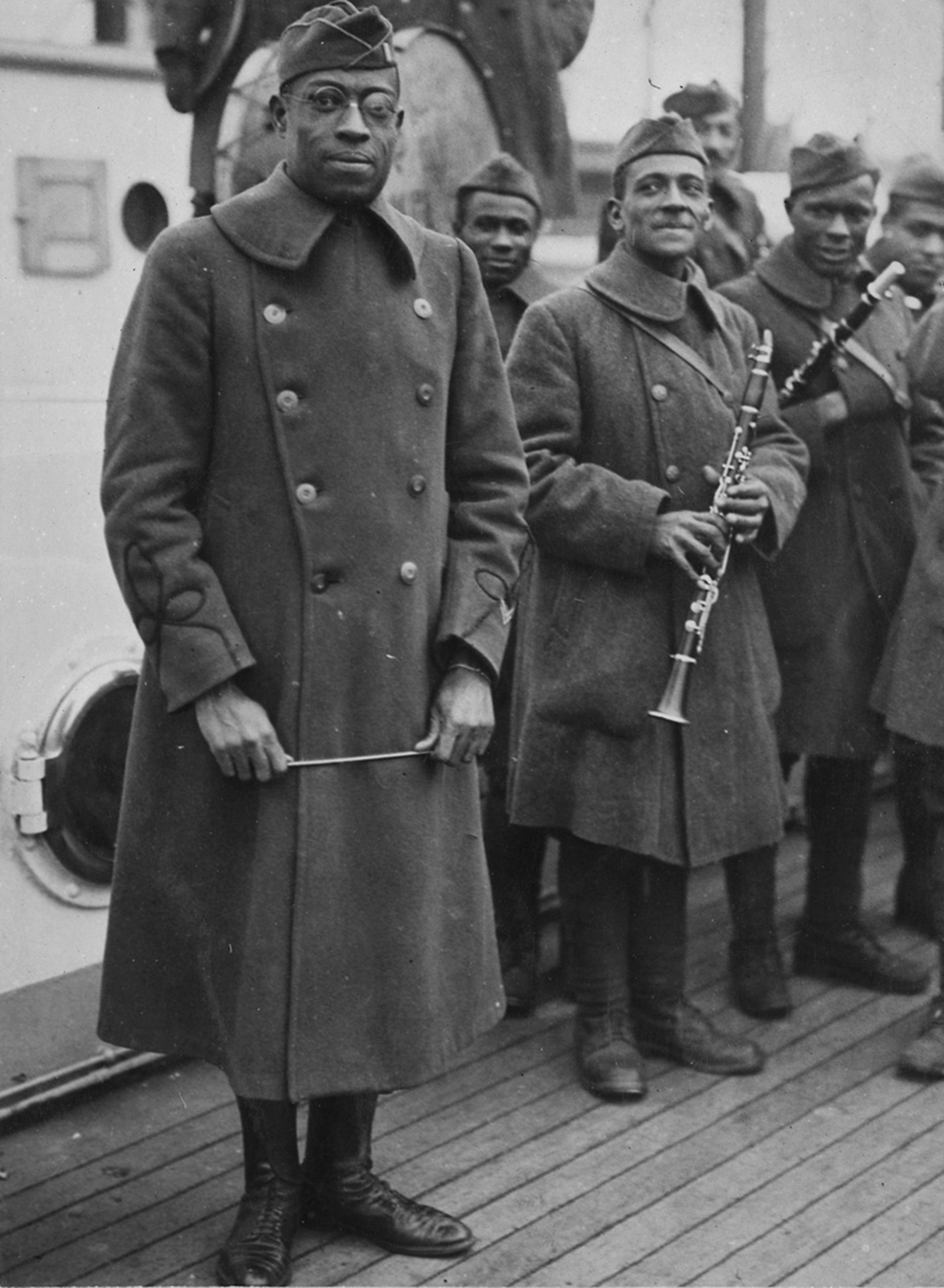Europe Continues Musical Heritage


Since our nation’s bicentennial, February has been a month-long celebration of African American contributions to history and culture, like that of ragtime bandleader and composer James Reese Europe. A descendent of the man Eubie Blake called “the Martin Luther King of Music” is Southold’s own Robert Foster Europe. He represented Long Island during the 2014 International Blues Challenge in Memphis and often performs on the North Fork, where he learned his great-grandfather’s trade.
James Reese Europe founded the Clef Club — a Harlem venue during the early 1900s frequented by black Americans in the music industry. He also was the first to bring proto-jazz to Carnegie Hall with a performance by the Clef Club Symphony Orchestra on May 2, 1912, entitled “A Concert of Negro Music,” which featured music exclusively by black composers, according to the Library of Congress.
Europe’s biography on the Library of Congress website states, “Europe left the Clef Club in 1913 and formed another organization, the Tempo Club. The new club served much the same purpose as the Clef Club, booking black musicians for the dances which were sweeping New York City social life. In 1914, Europe formed an association with the popular dancing duo Vernon and Irene Castle. Europe invented the turkey-trot with the Castles, and the fox-trot, which is still popular today.”
Europe also made history and broke race barriers, enlisting in the United States Army during World War I. He was commissioned as a lieutenant with the 369th Infantry Regiment — known as the “Harlem Hellfighters” — which was assigned to the French Army. He led the 369th Regiment Marching Band, which enjoyed a hero’s return to New York in 1919. The band ultimately recorded the famed vaudeville tune popularized by Sophie Tucker, “How Ya Gonna Keep ‘Em Down on the Farm (After They’ve Seen Paree)?”
The Independent caught up with Rob Europe, the 28-year-old blues musician, on the first day of African American History Month to ask how his ancestor’s achievements have influenced his own musical career. His group, The Foster Europe Band, kicked off the Friday night music series at Mattituck’s East On Main restaurant.
“I’d say he has influenced my music career just by setting a high standard to live up to,” Europe said. “Obviously our music is quite different. I really love and respect what he did, but it’s hard to get into ragtime in 2019.” Europe said while his great grandfather’s music hasn’t directly influenced his musicality, he has tried to arrange a few of James Reese Europe’s tunes and even performed one in New York City at last year’s Veterans Day parade ceremony celebrating the
bicentennial of World War I.
James Reese Europe’s impact on American music “cannot be overestimated,” according to his biography on the Library of Congress website. “Perhaps even more than Will Marion Cook, he shaped not only the music of his own time, but of future generations as well. His organizational accomplishments . . . prefigured the black-owned, black-run musical organizations that have existed since his time and to this day.”
For more information about James Reese Europe, visit the Library of Congress website. For more about his great-grandson, Robert Foster Europe, and his band’s upcoming gigs, visit www.robeuropemusic.com.
@GiannaVolpeReport



